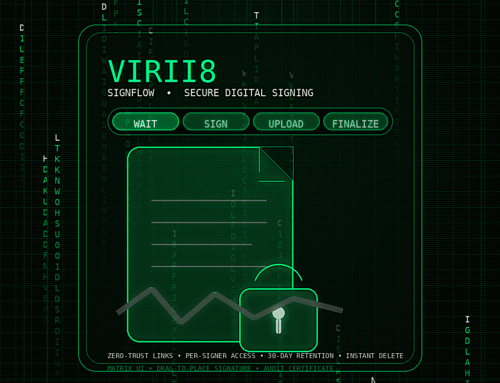
Approx. read time: 5.5 min.
Post: Cybersecurity burnout: 10 most stressful parts of the job
Cybersecurity burnout: 10 most stressful parts of the job. The cybersecurity skills shortage has gotten worse for the third consecutive year, according to the Information Systems Security Association (ISSA).
The cybersecurity skills shortage has gotten worse for the third consecutive year, impacting 74% of organizations worldwide, according to a Thursday report from the Information Systems Security Association (ISSA) and Enterprise Strategy Group (ESG).
The report surveyed 267 cybersecurity professionals worldwide, and respondents reported that they believe the skills gap to be a primary cause for the rise in cybersecurity incidents. Nearly half (48%) of respondents said they experienced at least one security incident over the past two years that led to serious ramifications, including lost productivity, high costs for remediation, disruption of business processes and systems, and breaches of confidential data.
Cybersecurity professionals remain skeptical of their chances for successfully protecting their organization, the report found. The majority (91%) said they believe most organizations are vulnerable to significant cyberattacks, and 94% said they believe the balance of power is tipped toward cybercriminals instead of cyber defenders.
Even with these concerns, 63% of organizations have fallen behind on providing adequate training for cybersecurity professionals, the report found. The largest skills shortages are now in the areas of cloud security (33%), application security (32%), and security analysis and investigations (30%).
“Cybersecurity progress has been marginal at best over the last three years,” Jon Oltsik, senior principal analyst and fellow at ESG and the author of the report, said in a press release. “This should be of concern to technologists, business executives and private citizens and continues to cause an existential threat to national security.”
Cybersecurity Burnout: 10 Most Stressful Parts of the Job
Cybersecurity professionals are dedicated to their craft: 42% of those surveyed have worked in the field for at least 10 years, the report found. The majority of cybersecurity pros (79%) said they started their career as IT professionals, and were attracted to the technical challenges and moral implications associated with security work. However, only 31% said they feel they have a well-defined career path today, and most said that they believed their career would benefit from activities like mentoring and career mapping.
Despite a lack of career guidance and staffing shortages, the cybersecurity professional’s workload continues to grow, the report found, leading to more time spent fighting fires and higher levels of burnout.
Here are the Cybersecurity burnout: 10 most stressful parts of the job:
- Keeping up with the security needs of new IT initiatives (40%)
- Finding out about IT initiatives/projects that were started by other teams within my organization with no security oversight (39%)
- Trying to get end users to understand cybersecurity risks and change their behavior accordingly (38%)
- Trying to get the business to better understand cyber risks (37%)
- The overwhelming workload (36%)
- Constant emergencies and disruptions that take me away from my primary tasks (26%)
- The fear of getting something wrong (25%)
- Keeping up with internal and regulatory compliance audits (25%)
- Monitoring the security status of third parties my organization does business with (24%)
- Sorting through the myriad of security technologies used by my organization (17%)
Perhaps due to these stressors, 47% of cybersecurity professionals report that they are only somewhat satisfied with their current job compared to 39% who say they are very satisfied, 10% who are not very satisfied, and 4% who are not at all satisfied, the report found.
The high levels of cybersecurity shortages have created a seller’s market for cybersecurity talent: In 2018, 77% of ISSA members said they were solicited for new jobs at least once a month, the report found.
“Organizations are looking at the cybersecurity skills crisis in the wrong way: it is a business, not a technical, issue,” Candy Alexander, executive cybersecurity consultant and president of ISSA International, said in the release. “Business executives need to acknowledge that they have a key role to play in addressing this problem by investing in their people…the research shows in order to retain and grow cybersecurity professionals at all levels, business leaders need to get involved by building a culture of support for security and value the function.”
Building on the Findings: Strategies to Address Cybersecurity Burnout
While the shortage of cybersecurity professionals continues to plague organizations, there are steps that both individuals and companies can take to address the burnout epidemic. Below are some key strategies:
- Invest in Continuous Training and Education: Businesses must prioritize cybersecurity education to help professionals stay ahead of evolving threats. Partnerships with industry organizations such as SANS Institute, ISACA, and academic institutions can help develop effective training programs.
- Promote a Culture of Cyber Awareness: Regular security awareness training for all employees helps reduce user-related risks, relieving some pressure off dedicated cybersecurity teams. Initiatives can be supported by resources from NICCS (National Initiative for Cybersecurity Careers and Studies).
- Implement Mentorship and Career Path Programs: Establish clear career progression frameworks and mentorship opportunities to boost job satisfaction. Organizations such as the ISSA can help connect professionals with mentors and peers.
- Adopt Flexible Work Arrangements: Allowing remote work and flexible schedules can help reduce stress for cybersecurity personnel who often deal with unpredictable threats and emergencies.
- Leverage Automation and AI Tools: Technologies like security orchestration, automation, and response (SOAR) platforms can help reduce manual workloads. According to Gartner, integrating automation can lower incident handling times significantly.
- Balance Workload and Encourage Time Off: Ensuring that security teams have adequate backup and are encouraged to take breaks or vacations can reduce fatigue and foster long-term retention.
- Foster Peer Support Communities: Regular check-ins, group discussions, and peer communities such as LinkedIn Cybersecurity Groups or local security meetups can give professionals a support system to share insights and cope with stress.
Additional Online Sources and Statistics
- SANS Institute – Understanding Cybersecurity Burnout
- (ISC)² Cybersecurity Workforce Study
- Cloud Security Alliance: Cybersecurity Workforce Gap Hits 3.4 Million
- National Institute of Standards and Technology (NIST)
As these sources indicate, the cybersecurity talent deficit remains critical, and the issues surrounding burnout are not going away soon. Addressing the mental health, training, and organizational support of cybersecurity professionals is paramount to defending against increasingly sophisticated threats.
By investing in holistic employee well-being and continued professional development, organizations can mitigate the burnout crisis and ensure cybersecurity teams remain resilient in the face of ongoing cyber risks.
Article crafted using best SEO practices. Retaining provided links and expanded with online citations and references for further reading.
Related Videos:
Related Posts:
Micromanaging and Its Impact on Mental Health: Understanding the Positive and Negative Sides
How can I build a career in artificial intelligence and contribute to its advancement?
Self-Development & Inspiration: Tools and Strategies for Personal Growth
Combatting the Surge of Counterfeit Chips: The Crucial Need for Zero Trust in Tech










